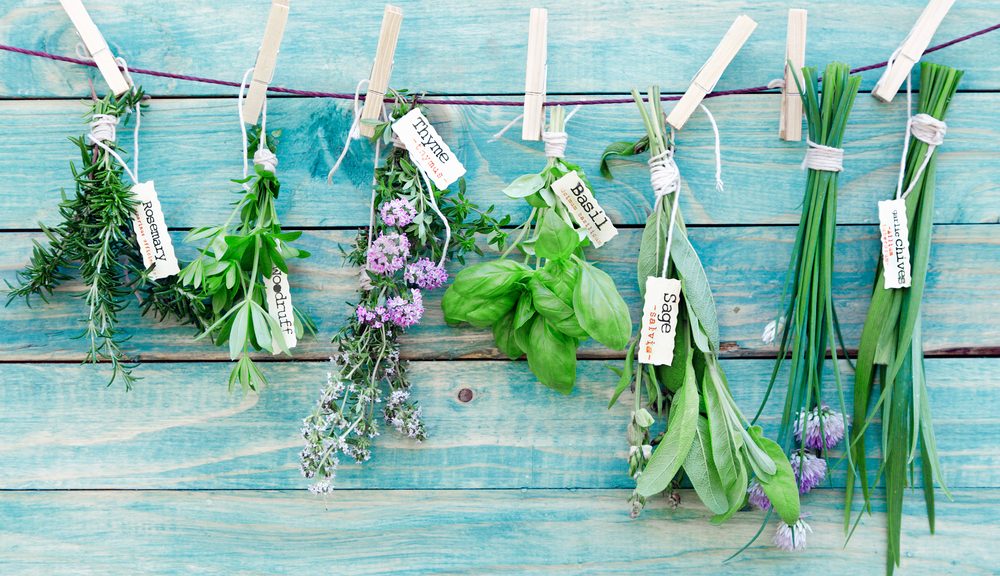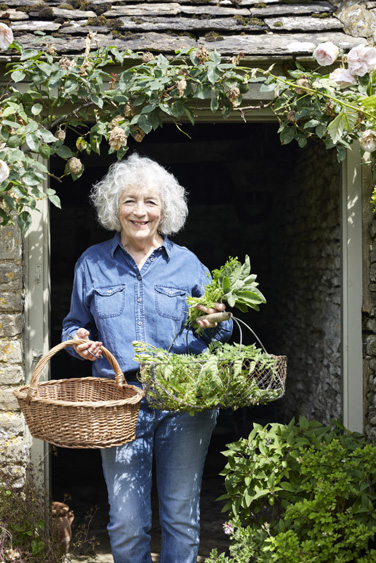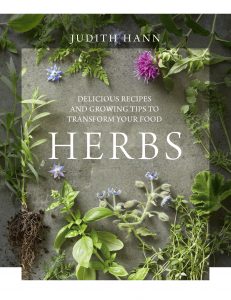
Herb Health
By Judith Hann, a respected science journalist and former President of the Herb Society
Herbs completely transform the taste of food, and they do this in a very healthy way, bringing depths of flavour to other ingredients so that you can reduce or remove salt, cream and fats from your recipes. I started to change my diet in this way at the time of my 40th birthday, when I was filming a series for the BBC on the science of ageing, which included one programme about the medical effects of eating healthier meals.
other ingredients so that you can reduce or remove salt, cream and fats from your recipes. I started to change my diet in this way at the time of my 40th birthday, when I was filming a series for the BBC on the science of ageing, which included one programme about the medical effects of eating healthier meals.
Overnight I stopped deep-frying food, moved from white rice, bread and pasta to brown, stopped using butter and cream and ate lots of vegetables and herbs. In the 30 years since then, I have moved from London to the Cotswolds, where I have the space for a large herb garden growing over 150 different types of culinary herbs and a vegetable garden full of fresh produce.
Even if you live in a flat and only have the space to grow herbs in pots on your windowsill or use a wall-hung planter with individual pockets for herbs, you can pick the right variety for a particular recipe just before cooking, using precisely the amount you need, knowing this freshness brings lots of vitamins and flavour to your food.
Many of my favourite herbs are hard to find in the shops, but easy to grow. Herbs like chervil with its aniseed taste, lovage which has a strong spicy celery flavour and sorrel with its wonderful lemon taste. I use these herbs most days in salads, sauces and pesto for example. I even use sorrel to make a delicious, bright green ice cream.
As my book on herbs through the seasons shows, these magical plants are the perfect convenience food because they can be harvested all year, just before you want them for a recipe. You eat them when you need them, not as with vegetables when the crop’s maturity dictates. Unlike cut herbs bought from shops, which soon go stale and yellow, you know that no chemicals have been used on your own herbs and you can always eat them totally fresh from the garden or window box.
As well as being used to enhance flavour instead of salt and fat, and to bring unique vitamins, nutrients, and freshness to all manner of dishes, herbs are also known for having other medicinal health benefits. For example, when guests arrive at my farm or to my herb cookery course at Hann’s Herbs, I always serve herb teas- the most popular of which is made with lemon balm. I am no expert on medicinal properties of herbs, but I explain that research is going on at Newcastle University in the use of lemon balm to improve memory. Someone always jokes that they should therefore drink it several times a day.
Furthermore, during my 20 years working as a presenter on the BBC’s Tomorrows World, I travelled to the border between Burma and Thailand, where the Karen tribe had been forced out by Burmese government to live in a refugee camp. There, at a primitive hospital, World Health Organisation doctors were running trials on using the herb Artemisia to cure malaria. It has proved to be the most successful treatment found so far.
Whether it’s for bright, bold flavour, freshness, or improving our digestion and boosting our memories, herbs bring a huge variety of health benefits to the table.
About Judith Hann
Judith Hann is a respected science journalist and was the President of the Herb Society. She was the well-loved presenter on the BBC’s Tomorrow’s World for 20 years, and is the author of Herbs: Delicious Recipes and Growing Tips to Transform Your Food (Nourish, 2017, £20.)
